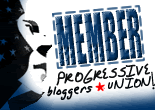A Bush, a Reagan, or an Eisenhower:
Whom would you trust?
All three are Fortunate Sons, to be sure.
But whom would you trust to tell you the truth about the state of our union?
Another View:
Why I will vote for John Kerry for President
By JOHN EISENHOWER
Guest Commentary
THE Presidential election to be held this coming Nov. 2 will be one of extraordinary importance to the future of our nation. The outcome will determine whether this country will continue on the same path it has followed for the last 3½ years or whether it will return to a set of core domestic and foreign policy values that have been at the heart of what has made this country great.
Now more than ever, we voters will have to make cool judgments, unencumbered by habits of the past. Experts tell us that we tend to vote as our parents did or as we “always have.” We remained loyal to party labels. We cannot afford that luxury in the election of 2004. There are times when we must break with the past, and I believe this is one of them.
As son of a Republican President, Dwight D. Eisenhower, it is automatically expected by many that I am a Republican. For 50 years, through the election of 2000, I was. With the current administration’s decision to invade Iraq unilaterally, however, I changed my voter registration to independent, and barring some utterly unforeseen development, I intend to vote for the Democratic Presidential candidate, Sen. John Kerry.
--snip--
I celebrate, along with other Americans, the diversity of opinion in this country. But let it be based on careful thought. I urge everyone, Republicans and Democrats alike, to avoid voting for a ticket merely because it carries the label of the party of one’s parents or of our own ingrained habits. LINK
The Case Against George W. Bush
The son of the fortieth president of the United States takes a hard look at the son of the forty-first and does not like what he sees
By Ron Reagan
September 2004, Volume 142, Issue 3
Illustration by Tim O'Brien
It may have been the guy in the hood teetering on the stool, electrodes clamped to his genitals. Or smirking Lynndie England and her leash. Maybe it was the smarmy memos tapped out by soft-fingered lawyers itching to justify such barbarism. The grudging, lunatic retreat of the neocons from their long-standing assertion that Saddam was in cahoots with Osama didn't hurt. Even the Enron audiotapes and their celebration of craven sociopathy likely played a part. As a result of all these displays and countless smaller ones, you could feel, a couple of months back, as summer spread across the country, the ground shifting beneath your feet. Not unlike that scene in The Day After Tomorrow, then in theaters, in which the giant ice shelf splits asunder, this was more a paradigm shift than anything strictly tectonic. No cataclysmic ice age, admittedly, yet something was in the air, and people were inhaling deeply. I began to get calls from friends whose parents had always voted Republican, "but not this time." There was the staid Zbigniew Brzezinski on the staid NewsHour with Jim Lehrer sneering at the "Orwellian language" flowing out of the Pentagon. Word spread through the usual channels that old hands from the days of Bush the Elder were quietly (but not too quietly) appalled by his son's misadventure in Iraq. Suddenly, everywhere you went, a surprising number of folks seemed to have had just about enough of what the Bush administration was dishing out. A fresh age appeared on the horizon, accompanied by the sound of scales falling from people's eyes. It felt something like a demonstration of that highest of American prerogatives and the most deeply cherished American freedom: dissent.
Oddly, even my father's funeral contributed. Throughout that long, stately, overtelevised week in early June, items would appear in the newspaper discussing the Republicans' eagerness to capitalize (subtly, tastefully) on the outpouring of affection for my father and turn it to Bush's advantage for the fall election. The familiar "Heir to Reagan" puffballs were reinflated and loosed over the proceedings like (subtle, tasteful) Mylar balloons. Predictably, this backfired. People were treated to a side-by-side comparison—Ronald W. Reagan versus George W. Bush—and it's no surprise who suffered for it. Misty-eyed with nostalgia, people set aside old political gripes for a few days and remembered what friend and foe always conceded to Ronald Reagan: He was damned impressive in the role of leader of the free world. A sign in the crowd, spotted during the slow roll to the Capitol rotunda, seemed to sum up the mood—a portrait of my father and the words NOW THERE WAS A PRESIDENT.
The comparison underscored something important. And the guy on the stool, Lynndie, and her grinning cohorts, they brought the word: The Bush administration can't be trusted. The parade of Bush officials before various commissions and committees—Paul Wolfowitz, who couldn't quite remember how many young Americans had been sacrificed on the altar of his ideology; John Ashcroft, lip quivering as, for a delicious, fleeting moment, it looked as if Senator Joe Biden might just come over the table at him—these were a continuing reminder. The Enron creeps, too—a reminder of how certain environments and particular habits of mind can erode common decency. People noticed. A tipping point had been reached. The issue of credibility was back on the table. The L-word was in circulation. Not the tired old bromide liberal. That's so 1988. No, this time something much more potent: liar.
Politicians will stretch the truth. They'll exaggerate their accomplishments, paper over their gaffes. Spin has long been the lingua franca of the political realm. But George W. Bush and his administration have taken "normal" mendacity to a startling new level far beyond lies of convenience. On top of the usual massaging of public perception, they traffic in big lies, indulge in any number of symptomatic small lies, and, ultimately, have come to embody dishonesty itself. They are a lie. And people, finally, have started catching on. LINK
George W. Tells It Like It Is
"I've been to war [sic]. I've raised twins. If I had a choice, I'd rather go to war." -- Bush, flat out lying in 2002.
"One of the interesting initiatives we've taken in Washington, D.C., is we've got these vampire-busting devices. A vampire is a—a cell deal you can plug in the wall to charge your cell phone."—Denver, CO. Aug. 14, 2001
"Well, it's an unimaginable honor to be the president during the Fourth of July of this country. It means what these words say, for starters. The great inalienable rights of our country. We're blessed with such values in America. And I--it's--I'm a proud man to be the nation based upon such wonderful values."--Visiting the Jefferson Memorial, Washington, D.C., July 2, 2001
"We spent a lot of time talking about Africa, as we should. Africa is a nation that suffers from incredible disease."--After meeting with the leaders of the European Union, Gothenburg, Sweden, June 14, 2001
"It's very important for folks to understand that when there's more trade, there's more commerce."--Quebec City, Canada, April 21, 2001
"I've coined new words, like, misunderstanding and Hispanically."—Radio-Television Correspondents Association dinner, Washington, D.C., March 29, 2001
"I am mindful not only of preserving executive powers for myself, but for predecessors as well."—Washington, D.C., Jan. 29, 2001
"Then I went for a run with the other dog and just walked. And I started thinking about a lot of things. I was able to—I can't remember what it was. Oh, the inaugural speech, started thinking through that."—Pre-inaugural interview with U.S. News & World Report, Jan. 22, 2001 issue
"Redefining the role of the United States from enablers to keep the peace to enablers to keep the peace from peacekeepers is going to be an assignment."—Interview with the New York Times, Jan. 14, 2001 (Thanks to Rachael Contorer.)
"The California crunch really is the result of not enough power-generating plants and then not enough power to power the power of generating plants."—Interview with the New York Times, Jan. 14, 2001
"They misunderestimated me."—Bentonville, Ark., Nov. 6, 2000
"I know how hard it is for you to put food on your family."—Greater Nashua, N.H., Chamber of Commerce, Jan. 27, 2000
"I know the human being and fish can coexist peacefully."-Saginaw, Mich., Sept. 29, 2000
"The great thing about America is everybody should vote."-Austin, Texas, Dec. 8, 2000
"It's clearly a budget. It's got a lot of numbers in it."--Reuters, May 5, 2000
"Rarely is the question asked: Is our children learning?"-Florence, S.C., Jan. 11, 2000
"I understand small business growth. I was one."-New York Daily News, Feb. 19, 2000
"The most important job is not to be governor, or first lady in my case."-Pella, Iowa, as quoted by the San Antonio Express-News, Jan. 30, 2000
"It's important for us to explain to our nation that life is important. It's not only life of babies, but it's life of children living in, you know, the dark dungeons of the Internet."—Arlington Heights, Ill., Oct. 24, 2000
"I think if you know what you believe, it makes it a lot easier to answer questions. I can't answer your question."— Reynoldsburg, Ohio, Oct. 4, 2000
"Natural gas is hemispheric. I like to call it hemispheric in nature because it is a product that we can find in our neighborhoods."—Austin, Texas, Dec. 20, 2000
"The senator [McCain] has got to understand if he's going to have—he can't have it both ways. He can't take the high horse and then claim the low road."—To reporters in Florence, S.C., Feb. 17, 2000
"We ought to make the pie higher."—South Carolina Republican Debate, Feb. 15, 2000
"They want the federal government controlling Social Security like it's some kind of federal program."—Debate in St. Charles, Mo., Nov. 2, 2000
"It's your money. You paid for it."—LaCrosse, Wis., Oct. 18, 2000
"It's not the governor's role to decide who goes to heaven. I believe that God decides who goes to heaven, not George W. Bush." -- George W. Bush, in the Houston Chronicle.
"There ought to be limits to freedom. We're aware of this [web] site, and this guy is just a garbage man, that's all he is." -- George Jr., discussing a web site that parodies him
"I'm a uniter not a divider. That means when it comes time to sew up your chest cavity, we use stitches as opposed to opening it up." -- Bush, on David Letterman, March 2, 2000. (the audience booed)
"I didn't -- I swear I didn't -- get into politics to feather my nest or feather my friends' nests." -- Bush Jr., in the Houston Chronicle LINK
To quote Al Gore...
"It just makes you want to sigh."







0 Comments:
Post a Comment
<< Home